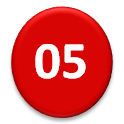Some books are so delicate, unwieldly, or otherwise restricted that it is nigh impossible to get a photocopy or scan by the usual means. On a whim I typed to see if there was anything like a 'handheld scanner' and was surpised to find out that there were and affordable ones too. I decided on the best rated model and bought one.
The Handyscan scanner consists in a long bar with scanning lights and rollers on the underside. It works by pressing a scan button, rolling the bar over the page or document and finishing by pressing the scan button again. The images are saved on *.jpg format in a microSD card (optionally included) and numbered sequentially for easy retrieval. There are a couple of extra settings as well: color or mono and 300dp or 600dp resolution. It works on 2 AA batteries and has a LCD screen for the controls. Images can be downloaded either through an included USB cable or by inserting the microSD in a drive that supports it (a microSD adapter is also optionally included).
You can judge the scan results by the following images.
Pros:
- Large capacity
- Can scan vertically or horizontally and is starting point agnostic
- Really handheld; can be sneaked in a library
- You can skip within a page
- It behaves well in my less than steady grip
- Can be used with one hand with natural movements
- Relatively low price
Cons:
- The document must be completely flat to get crisp results
- It only scans up to size A4
- Needs a computer to see the results
- Doesn't save to *.pdf (Overview of some tools for conversion and more here)
- Its borders at the ends aren't tight enough. This makes it difficult or impossible to scan a page at a time from books with slim to moderate inner margins without submitting the spine and binding to stress.
- The rollers can get dirty and can slightly soil the pages you are working on
- The battery case may not open using your hands only; I have to use a letter opener to pop it open (Update 1/8/14: Just discovered that one has to use the thumb, index and middle fingers to slide it)
- Frustrating until you get the proper scanning technique
 |
| Most of the output looks like this |
 |
| If not held, the page may shift |
 |
| This one came out fine. B&W |
 |
| Best quality setting w/color. Cropped |
Bottom line: If you already have a scanning project that can't be solved with a flatbed and are willing to spend some time effort and you can overlook the other cons, go for it.












0 comments:
Post a Comment